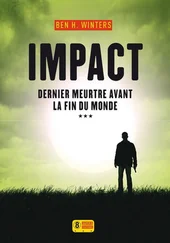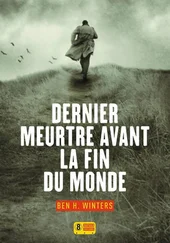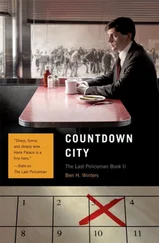“Hey. Mr. Speculator.” Ms. Aster is pointing at the sofa. “Is she all right?”
“What?”
It’s Paige, standing by the sofa, frozen in place with one hand in the air, the other hand on her hip, her mouth slightly open like she was about to say something and then just stopped.
“Hey,” I say. “Paige?”
I snap my fingers.
“Goodness. What is going on? ” Aster snaps her fingers too.
“Paige,” I say, a little louder, and she blinks, straightens up.
“Yeah. Sorry. But—are you—are you getting that?”
“Getting—” I look around. Now I recognize what I am seeing in her eyes, even though I’ve never worked with her before, never seen the way she reacts, because we all do it differently. But it’s happening to her like it did to me two hours ago at Terry’s, when I found myself unable to continue with the simple act of living because the air had been bent by the Tarjin boy’s insistent lie. Now, though, I’m clean. I’m undisturbed. I’m not catching anything. The only person in the room besides us two Specs is frank old Ms. Aster, and Aster isn’t even talking, she’s just staring back, grinning, just loving this new wrinkle, the unaccustomed excitement, the witchy strangeness, Speculators on her property—and now this, whatever this is.
But what is this?
It’s not a deceitful utterance that Paige has got on to, but something deeper, something in the bones of the moment, and I am seized by a sudden understanding of what Aysa Paige is all about, of what this is all about—she is standing there in clear reception of some dissonance, and I am not, and this is why Arlo wanted her in my car in the first place. She’s like Charlie, is what I’m thinking, and the thought is so clear and complete it is like snapping awake from a long and dreamless sleep.
She is like Charlie.
“What are you catching, Ms. Paige?” I say, and she doesn’t answer, just stands there uncertainly.
“Tell me where it’s coming from.”
“I’m not sure.”
“Aysa. Where is it?”
“I—” She shrugs. She looks around. She takes one step toward the kitchen, then one step back toward the door. She can’t figure it. It’s like we’re kids and we’re playing a game—it’s hotter… colder— with Ms. Aster an intent observer.
Then I get it, it rushes up in me, solution to problem, because maybe I don’t have what Paige has, maybe I’m no Charlie, but I’ve been doing this a long fucking time, okay? I’m slow but I ain’t stupid.
“Ms. Aster,” I say. “Are Crane’s boxes on-site?”
“Of course they are,” she replies, with a proud thrusted chin. “What kind of place do you think I’m running here?”
The Permanent Record is downtown, right across the Plaza from the Speculative Service, but the Provisional Record is everywhere—in storerooms and spare rooms and sheds, in crawl spaces underneath homes and attics atop them.
Aster’s, she tells us, is in a basement, so off we go in a small parade, marching in single file back onto the exterior landing. It’s one flight down to the courtyard, through a narrow entrance between apartment doors and one more flight down to the basement, then through a bleak unswept hallway to the morgue. Ms. Aster leads the way with her flashlight, me just behind her, and Paige bringing up the rear, tuned in, keen.
The basement is still and cold and full of boxes, lit by three banks of flickering fluorescents. A record room like other record rooms all over the State, in every residential building and private home, climate-controlled and easily accessible.
Everybody keeps everything. You know it; I know it. Archiving is a bulwark.
At age seventeen you’re issued your first package from the Preservation Office, a full set of boxes and bags accompanied by four small-type pages of instructions and warnings, making detailed reference to the relevant text of the Basic Law. It’s thrilling at the outset, to come out of your parents’ boxes and assume this solemn responsibility borne by all good and golden citizens: taking the time every evening, before it gets to be midnight or before you go to sleep, whichever comes first, to curate the day that has passed. To compile all interaction stamps, all recorded observations, all receipts and paperwork from the day that was, gather it all up into a Mylar bag, seal it and mark it and file it amongst all the other days of your life. We carry our individual archives, our Provisional Records, moving through the present with our past enturtled on our backs.
Otherwise how would everybody know, for sure and forever, that the things that have happened have actually happened? How would the law know for sure? How would the future?
Of course, most daily bags remain sealed for the rest of your life, because most truth never needs to be unsealed. But if the State should need it, there it is: every day can reviewed if necessary, every flat fact can be exhumed, held up to the light, double-checked and reverified, compared and contrasted with other relevant archives. And then one day death comes, and a team from the Record comes in afterward, bears your papers away, and your Provisional becomes a part of the Permanent, one more tributary flowing into the main trunk.
They’ll be here by the end of the day for Crane’s records, I don’t doubt, and I’m glad to miss ’em. Strange people, the death collectors. I’ve known a few.
Aster has her tenants’ respective archives organized into different areas of the room, and she finds Crane’s section with no trouble. I step around her and hover my flashlight over the topmost box and nudge it with my toe.
“Is this the first pallet?” I ask her.
“First and last.”
I look at her in the dim light, and then back at the pallet. A single pallet. Six boxes.
“Are you sure?”
“Yes.”
“Absolutely sure?”
“What am I going to do?” she says. “Lie?”
The room feels colder than it was. Colder and darker. I glance at Ms. Paige, and she looks uneasy, standing behind me with her hands on her hips.
“Ms. Aster.” My voice is in neutral. My mind is going ten different ways at once. “How old was this man again? If that’s a fact you’re—”
“Fifty-four,” says Aster, busybody, knowledge collector. She knows.
I grunt. I crouch to the pallet. Fifty-four years. Same as me. I shift my weight to talk over my shoulder to Paige.
“Hey. What’s your gut?”
“What?”
She looks caught out, confused. But this is how it works: you are confronted with something and you make a decision. Anomaly, whispers of anomaly. What do you do?
“Come on, Ms. Paige. Come on. Your gut.”
“Dig,” she says quietly. “My gut is we dig.”
“Okay.” I shrug. “So? Dig.”
She crouches down beside me and we open our satchels. I keep all the special small tools for this kind of investigation in a zippered inner pocket: the slicing tool for clean-cutting dailies, the highly specialized adhesive tape for officially and properly sealing them back up and stamping them opened/examined next to today’s date. We pry off the lid of the first box and start digging.
Crane has got everything in order, just like he’s supposed to, just like everybody: each day’s pocket flotsam is gathered together in its own Mylar bag, each week of days is gathered together in a durable hard-paper sack and sealed. We paw through Mose Crane’s days, and we are both thinking the same thing: they are thin. Some days only have one or two pieces of paper in them, one or two conversations, or just a couple of receipts, or none. Aster watches Paige and me, unsealing thin bag after thin bag—days without incident, nothing worth recording, no transactions, no conversations at all. There’s one Saturday, three weeks old, with a parking ticket, an unlucky lotto ticket, and a note to himself, torn from the corner of his Day Book, scrawled in pencil, indecipherable.
Читать дальше












